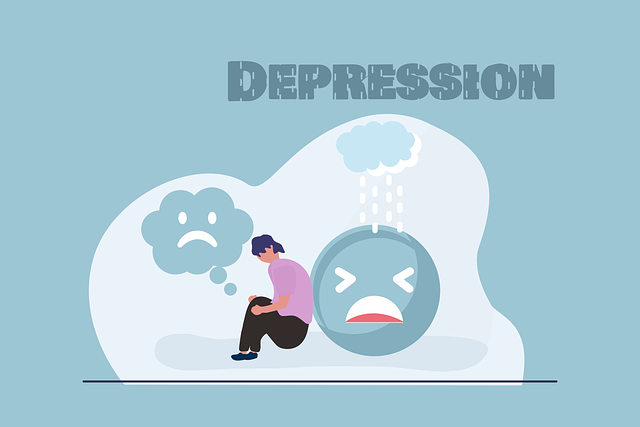Westminster Bipolar Disorder Therapy offers a comprehensive, integrated approach to managing bipolar disorder, combining evidence-based mood management techniques with social skills training. Their crisis intervention strategies emphasize active listening and simple communication for better patient understanding. Post-crisis support includes individual therapy, group support, family counseling, and preventative education, aiming to stabilize patients and prevent relapse. Through policy advocacy and the Mental Wellness Podcast Series, they promote accessible mental health resources and holistic care for individuals with bipolar disorder.
In times of crisis, effective intervention can be a lifeline for individuals living with bipolar disorder. This article provides a comprehensive guide on crisis intervention strategies, specifically tailored to the context of Westminster Bipolar Disorder Therapy. We explore essential components such as understanding the nature of crises, defining roles and responsibilities, implementing communication strategies that de-escalate tension, and offering post-crisis support to prevent future episodes. By delving into these key areas, we aim to equip professionals with valuable tools for navigating and mitigating bipolar disorder crises effectively.
- Understanding Crisis Intervention: A Brief Overview
- Identifying the Roles and Responsibilities of Westminster Bipolar Disorder Therapy
- Effective Communication Strategies During a Crisis
- Post-Crisis Support and Prevention Techniques for Bipolar Disorder
Understanding Crisis Intervention: A Brief Overview

Crisis intervention strategies are essential tools for professionals supporting individuals facing severe emotional or psychological distress, such as those with bipolar disorder. Often characterized by extreme mood swings, bipolar disorder requires tailored approaches to effectively manage symptoms and improve overall mental health. Westminster Bipolar Disorder Therapy offers a comprehensive framework that combines various evidence-based techniques.
One key component is mood management, focusing on stabilizing emotions and teaching individuals coping mechanisms. Additionally, social skills training empowers patients to navigate interpersonal interactions with confidence, fostering better relationships. Mental Health Policy Analysis and Advocacy plays a crucial role in understanding and advocating for systemic changes, ensuring accessible resources and support for bipolar disorder treatment. These integrated strategies create a holistic approach to crisis intervention, addressing the complex needs of those struggling with bipolar disorder.
Identifying the Roles and Responsibilities of Westminster Bipolar Disorder Therapy

In the context of crisis intervention strategies, Westminster Bipolar Disorder Therapy plays a pivotal role in managing and mitigating symptoms associated with bipolar disorder. This specialized therapy approach recognizes that each individual’s experience is unique, necessitating tailored interventions. The therapist’s responsibilities include creating a safe space for clients to express their feelings, helping them gain insights into their mood swings, and teaching effective coping mechanisms. Through structured sessions, they guide patients in understanding the patterns of their bipolar disorder, promoting self-awareness and empowering them to actively manage their mental wellness.
Westminster Bipolar Disorder Therapy incorporates various evidence-based techniques such as mindfulness meditation, which has been shown to reduce symptoms of anxiety and depression. The therapist facilitates practices that encourage clients to stay present, accept their emotions, and develop a non-judgmental mindset—essential components for improving overall mental health. Additionally, communication strategies are integral to the therapy process, fostering open dialogue, ensuring patients feel heard, and building trust between the therapist and client. These collaborative efforts contribute significantly to the production of a Mental Wellness Podcast Series, offering valuable insights and support to those navigating bipolar disorder and similar mental health challenges.
Effective Communication Strategies During a Crisis

During a crisis, effective communication is paramount to ensuring that individuals involved are supported and guided safely through the situation. For those dealing with mental health challenges like bipolar disorder, clear and empathetic communication can significantly alleviate distress. At Westminster Bipolar Disorder Therapy, we emphasize active listening, which involves paying close attention to both verbal and non-verbal cues from the individual in crisis. This strategy allows for a deeper understanding of their emotional state and helps in responding appropriately.
Additionally, using simple and reassuring language is crucial. Complex or technical terms can create a barrier between the caregiver and the person in need. Burnout prevention strategies for healthcare providers often include regular mental wellness coaching programs that equip them with communication skills to manage stress and maintain emotional resilience. These techniques are equally valuable for crisis intervention, enabling professionals to offer guidance without overwhelming the individual further. Stress management workshops organization can also enhance these communication strategies, fostering a culture of support within care teams.
Post-Crisis Support and Prevention Techniques for Bipolar Disorder

Post-crisis support is a critical component of managing Bipolar Disorder. Following a manic or depressive episode, individuals often require sustained care to prevent relapse and maintain stability. Westminster Bipolar Disorder Therapy focuses on providing comprehensive post-crisis interventions tailored to each patient’s unique needs. This may include individual therapy sessions, group support groups, and family counseling to help patients navigate the challenges of daily life while cultivating coping mechanisms for future crises.
Preventative measures are also a cornerstone of managing Bipolar Disorder. Mental Health Awareness plays a pivotal role in early identification and intervention. Crisis Intervention Guidance encourages individuals and their loved ones to be vigilant regarding warning signs of depression or mania, enabling prompt action to mitigate severe episodes. Through education and skill-building, patients can learn to recognize triggers, implement stress management techniques, and develop personalized strategies for Depression Prevention, ultimately enhancing their overall mental health and well-being.
Crisis intervention plays a pivotal role in managing bipolar disorder, as evidenced by the comprehensive strategies discussed. Understanding the dynamics of these interventions, from initial assessment to post-crisis support, is essential for effective care. The Westminster Bipolar Disorder Therapy approach emphasizes collaborative communication and individualized treatment plans, ensuring that those affected receive the necessary tools to navigate future crises. By combining these evidence-based practices, we can foster resilience and significantly improve outcomes for individuals living with bipolar disorder.














